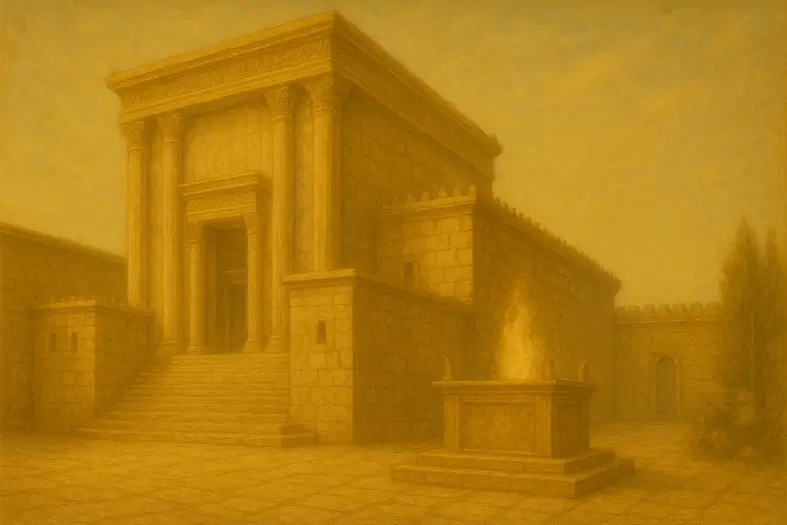


It is forbidden for anyone who is not a kohen to perform the Temple service.
This mitzvah prohibits non-kohanim from engaging in avodah in the Mikdash. While Levites had their assigned roles and Israelites could bring offerings, only kohanim descended from Aaron were permitted to conduct sacrificial service.
Rambam codifies this law to preserve the sanctity and structure of the Temple service. Allowing unauthorized individuals to serve would violate the divinely mandated hierarchy and dishonor the holiness of the avodah. Sefer HaChinuch stresses that the kohanim were sanctified by Hashem for this purpose, and others may not intrude on their role.
The Torah attaches the severe penalty of death by Heaven (mitah bidei shamayim) to a non-kohen who serves, underscoring the seriousness of maintaining Divine order in the Mikdash. Ramban adds that this mitzvah reflects the covenantal role of the priesthood, ensuring that the avodah is performed with the proper sanctity, order, and reverence.
Commentary & Classical Explanation:


Represents the concept of spiritual intentionality, purity, and sanctity—set apart for a higher purpose.
Concerns the Beit HaMikdash, korbanot (offerings), and priestly service.
Signifies awe and reverence toward Hashem—living with awareness of His greatness and presence.
Mitzvot that uphold fairness, honesty, and moral responsibility. Justice is kindness structured — ensuring that society reflects G-d’s order through truth, equity, and accountability.
Mitzvot that strengthen communal life — showing up, participating, supporting, and belonging. Community is where holiness is shared, prayers are multiplied, and responsibility becomes collective.
Mitzvot that define and deepen the relationship between a person and their Creator. These include commandments involving belief, prayer, Shabbat, festivals, sacrifices, and personal holiness — expressions of devotion rooted in divine connection.

Dive into mitzvos, prayer, and Torah study—each section curated to help you learn, reflect, and live with intention. New insights are added regularly, creating an evolving space for spiritual growth.

Explore the 613 mitzvos and uncover the meaning behind each one. Discover practical ways to integrate them into your daily life with insights, sources, and guided reflection.

Learn the structure, depth, and spiritual intent behind Jewish prayer. Dive into morning blessings, Shema, Amidah, and more—with tools to enrich your daily connection.

Each week’s parsha offers timeless wisdom and modern relevance. Explore summaries, key themes, and mitzvah connections to deepen your understanding of the Torah cycle.